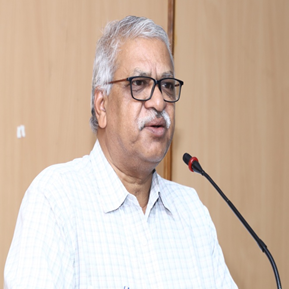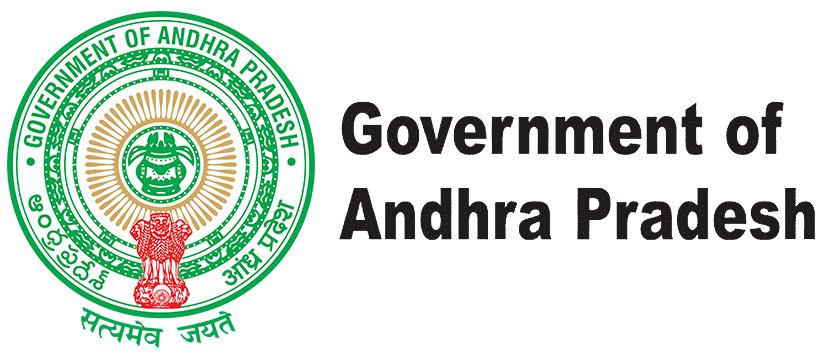
DIRECTOR: Prof. S. Vijaya Bhaskara Rao
*Recognized as a National Facility in the Country by the University Grants Commission, New Delhi.
Historical Backdrop:
To create scientific awareness about the potential use of the sophisticated radar and other instrumentation facilities for advanced research in the area of atmospheric sciences and to attract bright and young researchers to utilise the MST Radar, Lidar and other co-located Facilities available at NARL, Gadanki; University Grants Commission (UGC) has established an UGC-SVU Centre at S.V. University, Tirupati, to serves as a common platform for the University system in India for the exchange of scientific knowledge and the centre is accessible to scientist and researcher from Indian Universities working in the area of Atmospheric Sciences.

Prof. M. Srinivasulu Reddy
Co-Ordinator, DBT-BIF Centre
Contact: 9866206362
BIF: 0877 2249697
svucbs.btisnet@nic.in
profmsrsvu@gmail.com
Brief summary about BIF Centre:
The Bioinformatics Infrastructure Facility (BIF) was established in the Department of Zoology, Sri Venkateswara University, Tirupati with the financial assistance from the Department of Biotechnology (DBT), New Delhi on 25th June 2010 for Bioinformatics Teaching and Research. The Centre has procured several hardwares and softwares, high speed internet and these infrastructure facilities were extended to all disciplines of Life Sciences in campus to carry out their research work and project works in the field of Bioinformatics, Biotechnology, Computational Biology, Drug Discovery, Ethanopharmacology and Human Diseases etc. The Research person working at this centre import training to the Research Scholars and PG students in Bioinformatics teaching and research activities. Further the centre has been focusing research work in Molecular Modeling, Molecular Dynamics, Drug Targeting & Drug discovery, Genomics, Proteomics, Pharmacophore, Chemoinformatics, and NGS etc., this centre has the privilege of Conducting the 26th BTIS’net Annual Co-Ordinator’s Meeting and National conferences and Bioinformatics workshops and received lot of appreciation from Researches and scientist/academicians. The Centre has received “INCENTIVE AWARD FOR PUBLICATIONS” for Two years i.e. 2014 and 2016 from DBT

This Institute was started in the name of Sri Venkateswara Oriental Institute by the management of Tirumala Tirupati Devasthanams in 1939 with a Preamble to promote research in Oriental learning and to establish a specialized research library with manuscripts and printed books on all aspects of Indology. The Institute was transferred to the Sri Venkateswara University on 1st November, 1956 in order to develop the institute on modern lines with diversification of its activities. It began functioning under the name of Sri Venkateswara University Oriental Research Institute. It has two wings called Research wing and Library wing.
The Library of the Institute contains 16,948 manuscripts and 50,000 printed books. Each book in the library is purchased selectively on consideration of its utility in the research activities of the Institute covering all the fields of Indian tradition.
The Centre for Extension Studies of Sri Venkateswara University, Tirupati took initiative to establish the Centre for Women’s Studies in Sri Venkateswara University. The Centre was established in the year 2007 on self –supporting basis with focus on Women’s Development, Gender Equality and justice. In 2009, the UGC approved the Centre and sanctioned financial assistance to the Centre and thus the Centre for Women’s Studies was established in S.V. University as a Regular Department. The Centre aims to sensitize the students on various women’s issues and trains them in enterprise and Management of innovative technologies specifically to increase women’s visibility in teaching, research & management. It also aims at enhancing their competencies, build a platform for Women’s Equality and Rights, and establish Gender Justice in the Civil Society. At present the Centre is headed by one Director i/c, five Academic Consultants and one Supporting Staff. The Centre has been offering PG course in M.A. Women’s Studies and Management since 2007 with an intake of 30 students. Masters’ Programme in Women’s Studies has been introduced with total 96 mandatory credits under the Choice Based Credit System. The Course is open to both boys and girls. Besides, PG programme, the Centre is also offering Research Degree leading to Ph.D. In the beginning the Centre also offered P. G. Diploma in Research Methodology through the Distance Education mode. The Centre for Women’s Studies is an Interdisciplinary and collaborate entity with sister departments in the University Viz.,
The centre for studies in peace and non-violence was established in1976. Prof. K. Satchidananda Murthy, former vice-chancellor was the principal architect of the centre which was inaugurated on 13-10-1976 by Prof. Satishchandra, the then Chairman of the University Grants Commission, New Delhi. The purpose of the Centre is, in general, to study peace and non-violence in their widest context. However, in more specific terms, its aim is to develop an applied science of Peace research with the goal of preventing wars and promoting positive peace i.e. the unification of mankind into co-operative enterprise on a world-scale. To this end the centre endeavors to foster and promote inter-disciplinary studies and research relating to problems of war, peace and non-violence. 4 M.Phil. And 2 Ph.D. degrees have been awarded so far. 3 research projects have been completed. 8 books have been published by the Centre. Kargil Protest March, International Day of Peace, U.N.Day, Communical Harmony Day were celebrated by the Centre .18 Seminars have so far been conducted.
The centre has collaboration with Gandhi smriti and darsan samiti, New Delhi (Govt. of India), International Centre for Gandhian Studies and Research, Govt. of India, New Delhi, Shiksha Mandal, Wardha, National Foundation for Communal Harmony, Govt. of India, New Delhi and University of Notre Dame, U.S.A. The UGC, New Delhi has approved the proposals submitted by the Centre, to introduce Post Graduate Course in Gandhian Studies (Specialization in rural Development and Extension Programme) from the academic year 2006-07, with financial assistance of Rs. 8.2 lacks. The Centre for Gandhian Studies was inaugurated by our esteemed Vice-Chancellor Prof. S. Jayarma Reddy on 29 march 2006 at the senate hall in the inaugural Session of the National Seminar on “Impart of Gandhian Thought on Globalization” for which he happened to be the chief Guest and was preside over by Prof. N. Radhakrishnan, Chairman, Indian Society of Gandhian Studies, New Delhi. Prof. A. Ranga Reddy was appointed as the co-ordinator of this new centre.
The Centre for Extension Studies, S.V. University, Tirupati functioning since 1990, was established to strengthen and promote the Third Dimension of Higher Education –Extension through Teaching, Research and Outreach. Today, Extension along with teaching and research is one of the goals of the University system. The extension and outreach activities for creating awareness and dissemination of knowledge to the rural people have been made mandatory in higher educational institutions. A comprehensive plan of action for community development programme has been chalked out involving the students and staff of Centers. Various programmes are planned and organized where in expertise of related departments are utilized. The community development programme is planned to initiate student participation in line with the welfare of the community at large. The extension and outreach programme for the community is a continuous process throughout the academic year. The centre undertakes extension and out reach activities by utilizing the expertise of various departments of the development of needy communities. A number of programmes like awareness on Health and Hygiene, Population Education, Social Empowerment of Women are regularly conducted by this centre.
The centre for Rural Development and Appropriate Technologies (CeRDAT), Sri Venkateswara University, Tirupati aims at improving the quality of life in villages through demonstration, construction, manufacture and marketing, teaching and training, extension, and research activities. The main areas of thrust for the Centre are low-cost housing, drinking water, sanitation and alternate sources of energy. CeRDAT aims to be nodal agencies in the region to disseminate appropriate technologies into villages through governmental and nongovernmental organizations. CeRDAT also aims at co-coordinating all the activities in the University pertaining to rural development.
An appropriate technologies park has been started in the University during 1991, with a funding from the Ministry of Human Resources Development, Government of India. In addition to offering a one year post Graduate Diploma in Rural Development and Appropriate Technologies, the centre has been offering training programmes to different target groups like engineers, masons, potters, unemployed rural developments who get exposed to different appropriate technologies demonstrated in CeRDAT. H.U.D.C.O. has sponsored a Building Centre under the Lab to Land programme.
In technical collaboration with Development Alternative, New Delhi, a demonstration building comprising appropriate technologies like Rat Trap Bonding, filler R.C.C. slab, ferrocement roofarches and doors, brick dome etc., was constructed. Models of drinking water mud filters, low-cost latrine with twin pits, biogas plants, smokeless stoves, solar cookers, solar lantern, Pabal Dome etc. are available in the centre for demonstrating and imparting training. Machines to manufacture sand-cement blocks both manually and electrically, micro-concrete roof tiles, pressed mud bricks are available in the Centre. The Centre has a micro-fische library with details of many appropriate technologies available around the world. The Centre has organized several training programmes and conducted Gramsabhas in villages to take these technologies to the doorsteps of the masses. Three workshops and one seminar were organized with the assistance of state and central government agencies.
Prof.G.Ramprasad was instrumental in establishing this centre and gave an impetus to the theme of university – society interaction. Dr.K.Nagendra Prasad has recently taken over the charge as the co-ordinator of this centre.


